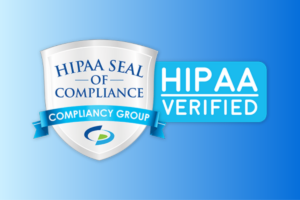Each year medical providers around the country take a week to highlight and emphasize patient safety awareness. March 13-19 has been designated as Patient Safety Awareness Week in 2022. The week’s primary focus is preventing errors and accidental incidents that cause harm to patients within the clinical setting.
It also provides an excellent opportunity to address potential harms to patients outside the clinical setting as a result of data breaches caused by the actions of cybercriminals or employees.
Patient Safety Awareness Week 2022: Dangers Posed by Breaches
When a patient’s protected health information (PHI) is breached, it can cause severe damage to the health of their finances and reputation. Today, medical records are sold on the dark web for more than banking and other financial records.
It’s easy to understand why. The 18 pieces of information defined as PHI contain enough information to allow someone to build a complete picture of who you are that they can then use to steal your identity.
From there, online criminals can use your identity to secure loans, make purchases on credit, and commit other illegal acts in your name.
Patient Safety Awareness Week 2022: HIPAA Compliance as a Foundation of Protection
The good news is that you can protect your patients’ PHI simply by doing something you already have to do – creating and maintaining an effective HIPAA compliance program.
The HIPAA regulations developed and enforced by the Department of Health and Human Services state that healthcare providers and the vendors that support them must take steps to limit access to patient PHI. These regulations also require organizations that create, use, or possess PHI to make good faith efforts to secure PHI to prevent it from being breached.
Patient Safety Awareness Week 2022: Challenges to Achieving HIPAA Compliance
There are two major obstacles to achieving HIPAA compliance faced by most healthcare providers and their business associates.
First, the HIPAA regulations are applied to a wide variety of healthcare organizations and businesses, ranging from a single doctor’s office to a regional medical center with thousands of medical professionals and support staff. The needs and challenges faced by these two entities are completely different, as are the steps each must take to be fully HIPAA compliant. To accommodate this wide variety of applications, the law was written to be intentionally vague.
Second, an organization must comply with all of the requirements of the regulations to be HIPAA compliant – specifically the Privacy Rule, the Security Rule, the Omnibus Rule, and the Breach Notification Rule. There are no breaks given to smaller or larger organizations, and being “almost” compliant does not count.
Patient Safety Awareness Week 2022: Benefits of HIPAA Compliance
Being HIPAA compliant carries many benefits. Compliant organizations do not face fines and penalties for failing to meet the requirements of the law. The average fine imposed for those violating HIPAA regulations is $1.5 million.
The greater benefits come from an increased trust by your patients and clients because you are making the effort to safeguard their PHI. Patients want to know that you are doing the right thing to protect their data from criminals and bad actors online.
HIPAA compliance is the foundational part of building a culture of compliance that can improve efficiency, build trust, and differentiate your organization from others.
If achieving HIPAA compliance has you baffled, or if you just want to simplify the process in a way that gives you peace of mind, Compliancy Group is here to assist. We have nearly 20 years of experience leading businesses like yours to achieve and maintain HIPAA compliance in a way that reduces stress, saves overhead costs, and meets the full requirements of the law.









